
- الأفريقي
- الألبانية
- الأمهرية
- عربي
- الأرمينية
- أذربيجاني
- الباسك
- البيلاروسية
- البنغالية
- البوسنية
- البلغارية
- الكاتالونية
- السيبيونو
- الصين
- الصين (تايوان)
- كورسيكية
- الكرواتية
- التشيكية
- دانماركي
- هولندي
- إنجليزي
- الاسبرانتو
- الإستونية
- الفنلندية
- فرنسي
- الفريزية
- الجاليكية
- الجورجية
- ألمانية
- اليونانية
- الغوجاراتية
- الكريولية الهايتية
- الهوسا
- هاواي
- اللغة العبرية
- لا
- مياو
- المجرية
- الأيسلندية
- igbo
- الاندونيسية
- الأيرلندية
- ايطالي
- اليابانية
- الجاوية
- الكانادا
- الكازاخستانية
- الخمير
- الرواندية
- الكورية
- كردي
- قيرغيزستان
- السل
- اللاتينية
- لاتفيا
- الليتوانية
- اللوكسمبرجية
- المقدونية
- Malgashi
- لغة الملايو
- المالايالامية
- المالطية
- الماوري
- المهاراتية
- المنغولية
- ميانمار
- النيبالية
- النرويجية
- النرويجية
- الأوكيتانية
- الباشتو
- اللغة الفارسية
- تلميع
- البرتغالية
- البنجابية
- روماني
- الروسية
- ساموا
- الغيلية الاسكتلندية
- الصربية
- إنجليزي
- شونا
- السندية
- السنهالية
- السلوفاكية
- السلوفينية
- الصومالية
- الأسبانية
- السودانية
- السواحلية
- السويدية
- التاغالوغية
- الطاجيكية
- التاميل
- التتار
- التيلجو
- التايلاندية
- اللغة التركية
- التركمان
- الأوكرانية
- الأردية
- الأويغور
- الأوزبكية
- الفيتنامية
- تهرب من دفع الرهان
- يساعد
- اليديشية
- اليوروبا
- الزولو

Premium Perlite: Boost Plant Growth with Superior Drainage
Introduction to Expanded Perlite
In the advanced material science landscape, perlite stands out as a versatile, naturally occurring amorphous volcanic glass that expands significantly when heated. This remarkable material, known for its ultra-lightweight, insulative, and highly absorbent properties, is pivotal in a myriad of industrial and agricultural applications. Originating from specific geological formations, raw perlite ore undergoes a carefully controlled thermal process, transforming it into the expanded white, porous granules familiar across diverse sectors. Its unique physical and chemical inertness, coupled with its excellent performance characteristics, positions expanded perlite as an indispensable component in modern solutions ranging from high-performance construction materials to advanced horticultural substrates and specialized filtration media.
The demand for high-quality, sustainably sourced materials continues to grow, placing a premium on products like perlite that offer both superior performance and environmental benefits. As B2B decision-makers and engineers increasingly seek materials that enhance efficiency, reduce operational costs, and meet stringent regulatory standards, understanding the intricacies of perlite's production, specifications, and diverse application potential becomes paramount. This comprehensive overview delves into the technical aspects, industry trends, and strategic advantages of integrating perlite into various industrial processes.
Current Industry Trends and Market Dynamics for Perlite
The global market for perlite is experiencing robust growth, driven by escalating demands across key sectors such as construction, horticulture, and industrial filtration. In construction, the focus on energy efficiency and fire safety has significantly boosted the adoption of perlite-based insulation boards, lightweight aggregates, and refractory products. According to a report by Grand View Research, the global expanded perlite market size was valued at USD 1.5 billion in 2022 and is projected to grow at a compound annual growth rate (CAGR) of 6.5% from 2023 to 2030, primarily due to its increasing use in building and construction. This trend is further amplified by stringent building codes and a heightened awareness of sustainable construction practices.
Horticulture represents another significant growth driver, with the increasing popularity of soilless cultivation (hydroponics), container111 gardening, and the demand for high-quality growing media. The excellent aeration, water retention, and drainage properties of perlite potting soil make it an ideal choice for optimizing plant growth and yield. Moreover, the demand for `chunky perlite` in specialized applications, such as improving drainage for large plants or in green roofs, is also on an upward trajectory. The shift towards sustainable agriculture and urban farming initiatives further underpins the expanded use of perlite.
Beyond these sectors, industrial applications, including cryogenic insulation, specialized lightweight fillers in paints and coatings, and as a highly effective filter aid in food and beverage processing, continue to solidify perlite's market position. The material's non-toxic, inert nature also makes it attractive for applications requiring high purity and chemical stability. Innovations in processing technologies are leading to customized perlite grades tailored for specific industrial needs, further broadening its market reach and reinforcing its status as a critical raw material for a sustainable future.
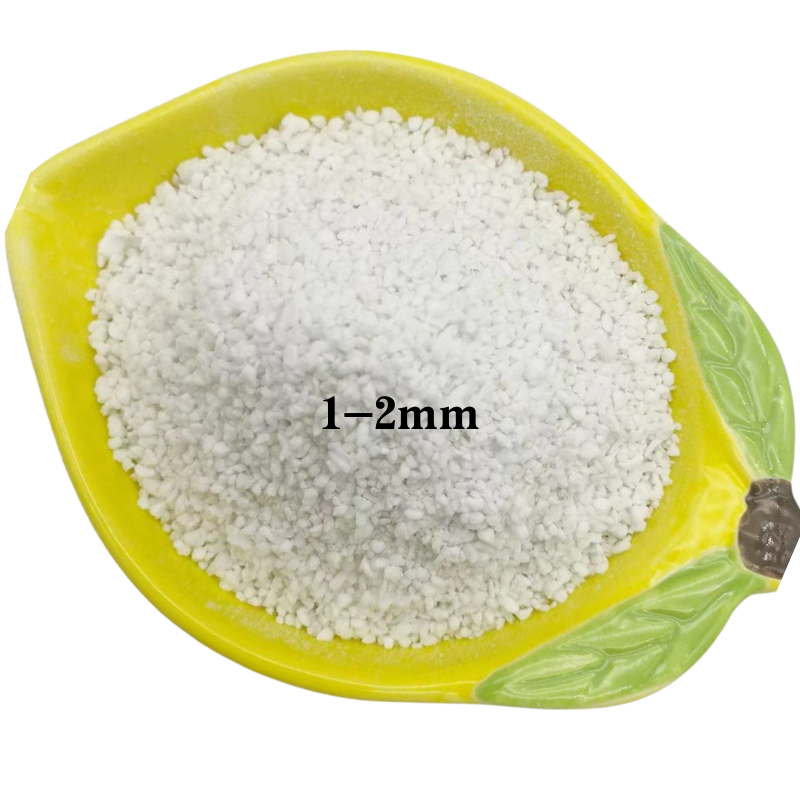
Manufacturing Process Flow of Expanded Perlite
The transformation of raw perlite ore into its expanded, functional form is a sophisticated industrial process involving several precise steps, ensuring the final product meets stringent quality and performance standards. This detailed process flow highlights the commitment to material integrity and operational efficiency.
-
1. Raw Material Sourcing and Crushing:
High-grade naturally occurring perlite ore, an amorphous volcanic glass rich in combined water, is sourced from geological deposits. The raw ore typically contains 2-6% combined water. It then undergoes primary crushing to reduce its size, followed by milling and screening to achieve a specified particle size distribution suitable for expansion. This initial sizing is crucial for uniform expansion.
-
2. Pre-heating (Optional but beneficial):
In some advanced facilities, the crushed ore may be pre-heated to remove surface moisture and prepare the internal structure for more efficient expansion, preventing thermal shock and ensuring a more uniform expansion profile.
-
3. Flash Calcination (Expansion):
This is the core of the process. The sized perlite ore is rapidly heated in a specialized expansion furnace to temperatures typically ranging from 850°C to 1100°C (1560°F to 2010°F). During this instantaneous heating (often called flash calcination), the combined water within the glass structure vaporizes and causes the softened glassy particles to expand up to 20 times their original volume. This rapid expansion creates countless microscopic bubbles, resulting in a lightweight, porous, and highly insulative material. The precise temperature and dwell time are critical for controlling the final product's density and cell structure.
-
4. Cooling and Classification:
The expanded perlite is quickly cooled to stabilize its structure. Subsequently, it undergoes air classification or screening to separate it into various grades based on particle size and density, ranging from fine powders to `chunky perlite` granules. This step ensures that the final product meets specific application requirements.
-
5. Quality Control and Packaging:
Each batch undergoes rigorous quality control testing, adhering to international standards such as ASTM C549 for expanded perlite aggregate for insulation and ASTM C35 for expanded perlite aggregate for concrete. Key parameters tested include bulk density, particle size distribution, water retention, thermal conductivity, and chemical inertness. Upon successful validation, the expanded perlite is packaged in various formats, including bags, super sacks, or bulk deliveries, ready for distribution.
This meticulous manufacturing process ensures that the resulting perlite material exhibits optimal performance for target industries like petrochemical, metallurgy, water supply & drainage, and agriculture. Advantages include significant energy savings due to superior insulation, enhanced corrosion resistance in specialty coatings, and improved water management in horticultural substrates. The service life of perlite-based products often exceeds conventional alternatives, contributing to long-term cost efficiencies and reduced maintenance.
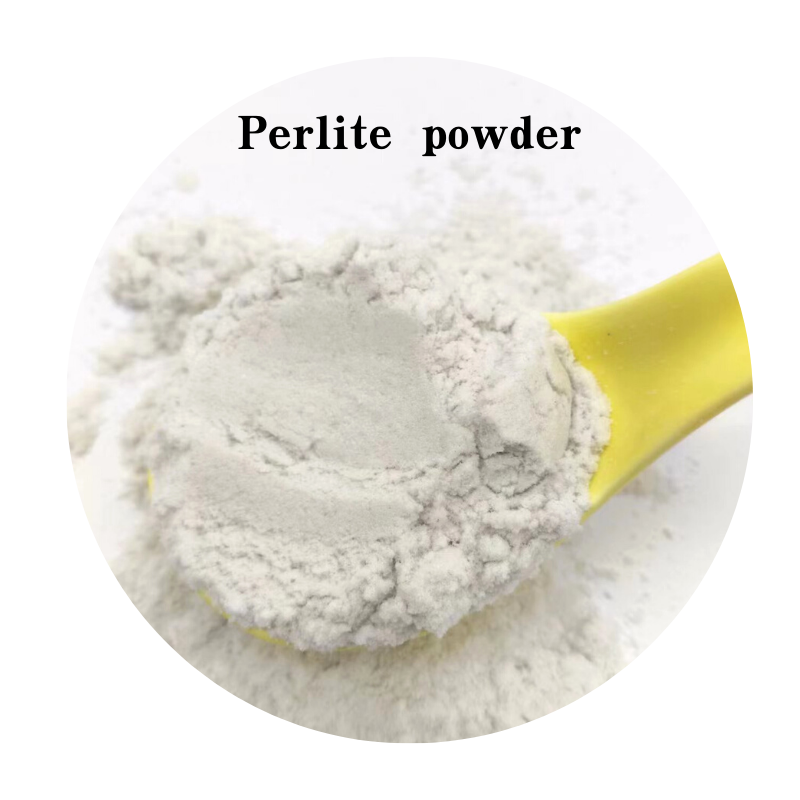
Technical Specifications and Performance Parameters
The efficacy of perlite in industrial applications is directly attributable to its precise technical specifications, which dictate its performance across various environments. Understanding these parameters is crucial for engineers and procurement specialists in selecting the appropriate grade for their specific requirements. Our expanded perlite meets or exceeds relevant international standards, including ISO 9001 for quality management and ASTM C549 for its use as a thermal insulating fill.
| Parameter | Unit | Typical Range | ASTM Standard |
|---|---|---|---|
| Bulk Density (Loose) | kg/m³ (lb/ft³) | 30 - 150 (1.9 - 9.4) | C549 |
| Thermal Conductivity (k-value) | W/m·K (BTU·in/hr·ft²·°F) | 0.040 - 0.065 (0.28 - 0.45) | C518 |
| pH Range | N/A | 6.5 - 7.5 (Neutral) | E70 |
| Softening Point | °C (°F) | ~870 - 1090 (~1600 - 2000) | N/A |
| Moisture Content | % by weight | < 0.5 | C549 |
| Water Holding Capacity | % by volume | 200 - 400 | N/A |
| Ignition Loss | % by weight | < 0.5 | C549 |
The specific particle size distribution of perlite can be tailored to application needs, influencing properties such as filtration rate, porosity, and aggregate strength. Fine grades are optimal for filtration, while coarser grades, including `chunky perlite`, are preferred for lightweight concrete or horticultural drainage. Our production capabilities allow for customized sizing to meet diverse industrial requirements.
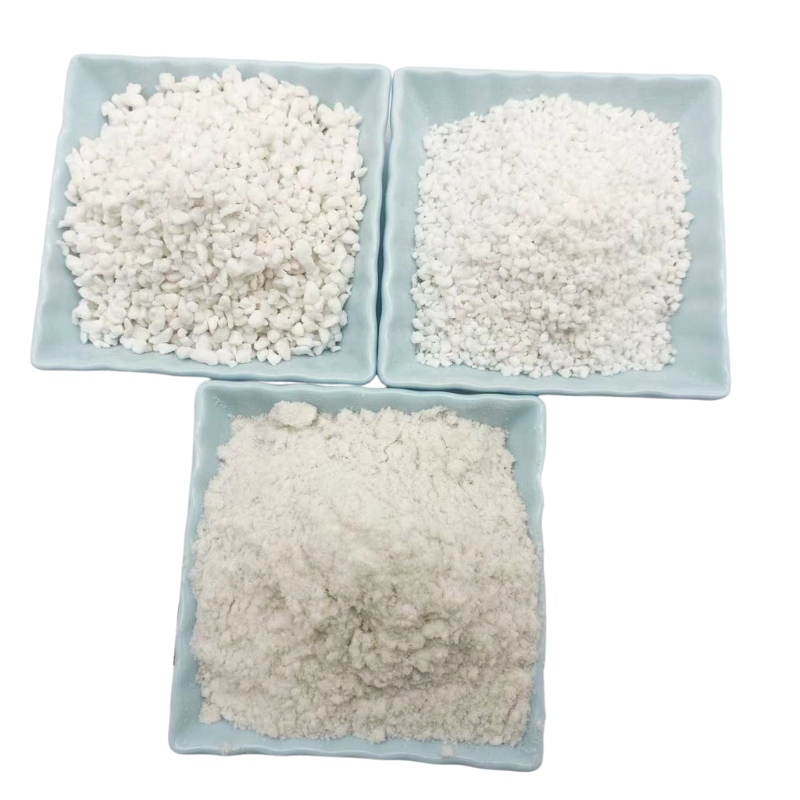
Diverse Application Scenarios of Perlite
The unique characteristics of expanded perlite allow for its integration into an extensive array of industrial and commercial applications, delivering significant performance enhancements and operational efficiencies.
-
Horticulture and Agriculture:
Perlite is an essential component in growing media, potting mixes, and hydroponic systems. Its high porosity ensures excellent aeration for root development, while its impressive water retention capacity reduces watering frequency. When used as a component of `perlite potting soil`, it prevents soil compaction, improves drainage, and provides a stable, inert environment for plant growth. Large particle sizes, i.e., chunky perlite, are particularly effective for heavy-draining needs or for amending dense clay soils.
-
Construction and Building Materials:
Its lightweight and insulative properties make perlite ideal for lightweight concrete, plaster, and stucco aggregates. It improves fire resistance, sound absorption, and thermal insulation in walls, roofs, and floors. Perlite-based insulation products are widely used in commercial and residential construction for energy efficiency and structural integrity.
-
Cryogenic and High-Temperature Insulation:
The extremely low thermal conductivity of perlite makes it an excellent choice for insulating cryogenic storage tanks (e.g., for LNG, liquid oxygen, nitrogen) and high-temperature industrial processes. Its stability across a wide temperature range ensures reliable performance in extreme conditions.
-
Filtration Aid:
Fine grades of perlite are utilized as highly effective filter aids in diverse industries, including food and beverage (beer, wine, juices), pharmaceuticals, chemical processing, and wastewater treatment. Its intricate, irregular particle shape creates a filter cake with high porosity and excellent flow rates, trapping impurities efficiently.
-
Paints, Coatings, and Fillers:
As a lightweight filler, perlite reduces the density of paints, coatings, and plastics, improving workability, enhancing fire resistance, and providing texture without significantly increasing weight. It also contributes to thermal insulation in specialty coatings.
-
Environmental Applications:
Perlite is used for spill containment and absorption of oils and chemicals due to its high absorbency and inert nature. It also finds use in green infrastructure, such as stormwater management systems and biofiltration beds.
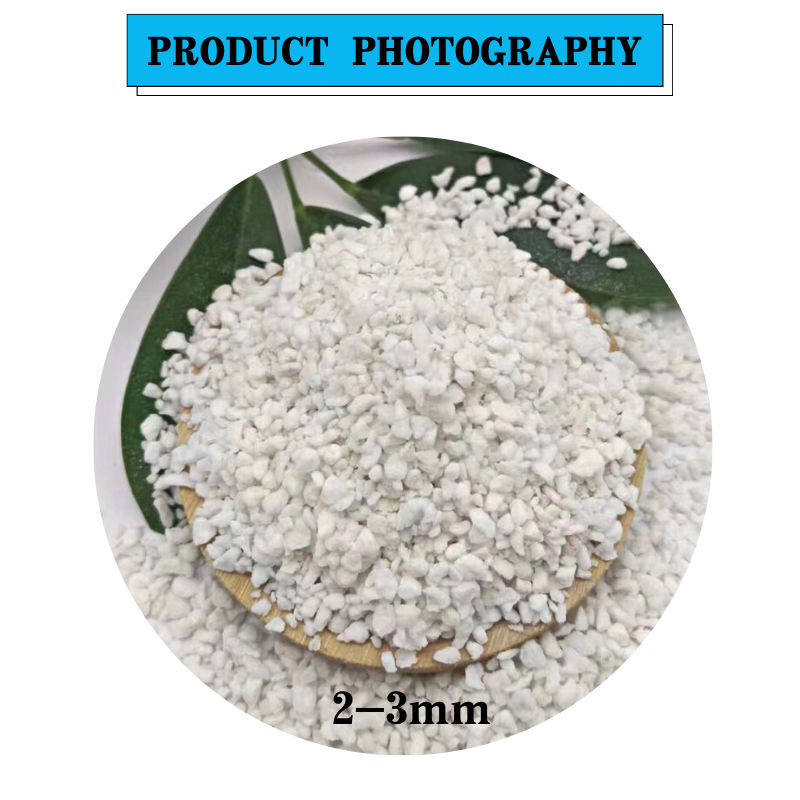
Technical Advantages and Performance Benefits
Integrating expanded perlite into industrial processes offers a distinct set of technical and operational advantages, making it a preferred material for demanding applications where performance, efficiency, and sustainability are paramount.
-
Superior Thermal Insulation:
The myriad of tiny, sealed air cells within expanded perlite makes it an exceptional thermal insulator. Its low thermal conductivity (k-value) significantly reduces heat transfer, leading to substantial energy savings in both hot and cold applications, from industrial furnaces to cryogenic storage tanks. This directly translates to lower operational costs and reduced carbon footprint.
-
Lightweight and High Porosity:
With bulk densities ranging from 30-150 kg/m³, perlite dramatically reduces the weight of composite materials, such as concrete and plaster, easing structural loads and facilitating easier handling and installation. Its high porosity (up to 90%) ensures excellent breathability and drainage, critical in horticultural applications.
-
Chemical Inertness and pH Neutrality:
Perlite is chemically inert, meaning it does not react with most acids, bases, or organic solvents. This stability makes it suitable for sensitive applications like food processing, pharmaceuticals, and specific chemical manufacturing. Its neutral pH (6.5-7.5) prevents adverse reactions in horticultural and industrial settings.
-
Excellent Fire Resistance:
Being an inorganic material, perlite is non-combustible and can withstand temperatures up to its softening point, providing superior fire resistance in building materials and industrial refractory applications. This enhances safety and compliance with fire codes.
-
High Absorbency:
The porous structure of perlite allows it to absorb and retain significant volumes of water and other liquids, making it invaluable in horticulture for moisture management and in environmental applications for spill control.
-
Sustainable and Environmentally Friendly:
Perlite is a natural mineral, abundant and non-toxic. Its use contributes to sustainable practices by improving energy efficiency, reducing material consumption (due to its lightweight nature), and being recyclable in many applications. It is free from organic impurities, pathogens, and weed seeds.
These combined advantages underscore why perlite is consistently chosen over alternative materials in sectors demanding high performance, durability, and environmental responsibility.
Vendor Comparison and Selection Criteria
When selecting a supplier for wholesale high-quality perlite, B2B buyers must evaluate potential vendors against a comprehensive set of criteria to ensure product quality, supply chain reliability, and optimal cost-efficiency. A thorough vendor comparison goes beyond mere price points, focusing on long-term value and partnership.
| Factor | Description | Our Offering/Recommendation |
|---|---|---|
| Product Quality & Consistency | Adherence to international standards (e.g., ASTM, ISO), consistent bulk density, particle size distribution, and chemical purity. | ISO 9001 certified processes, rigorous QC, guaranteed specifications, and traceable batch records. |
| Production Capacity & Scalability | Ability to meet high-volume orders and scale production to fluctuating demands without compromising lead times. | Modernized facilities with substantial capacity; flexible production scheduling for peak demands. |
| Customization Capabilities | Ability to produce specialized grades (e.g., specific particle sizes like chunky perlite, surface treatments) for unique applications. | Dedicated R&D and engineering teams for bespoke material solutions. |
| Supply Chain & Logistics | Reliable delivery, efficient warehousing, global shipping networks, and robust inventory management. | Strategic logistics partners, optimized packaging, and real-time tracking for dependable deliveries. |
| Technical Support & Expertise | Availability of technical specialists for application guidance, troubleshooting, and material optimization. | Experienced technical sales and support team, offering in-depth material science consultation. |
| Certifications & Compliance | Compliance with relevant industry certifications (e.g., ISO, FDA for food-grade, environmental standards). | Full suite of relevant certifications and adherence to global regulatory requirements. |
Prospective buyers should conduct a comprehensive audit of potential suppliers, including site visits and reference checks, to ensure alignment with long-term strategic objectives and operational requirements. Our commitment to transparent operations, certified quality, and customer-centric service ensures a reliable partnership for all your perlite needs.
Customized Perlite Solutions
Recognizing that off-the-shelf solutions rarely address every intricate industrial demand, we specialize in providing customized perlite products tailored to specific application requirements. Our engineering and R&D teams collaborate closely with clients to develop bespoke grades that optimize performance and integrate seamlessly into existing processes.
-
Particle Size Engineering:
From ultra-fine powders (e.g., for intricate filtration or lightweight fillers) to coarse, `chunky perlite` (e.g., for heavy-duty drainage or lightweight aggregate), we can precisely control particle size distribution to achieve desired bulk density, permeability, and surface area characteristics. This is crucial for optimizing filtration rates, compressive strength, or soil amendment efficacy.
-
Surface Modification:
For specific applications, perlite can be surface-treated to enhance hydrophobicity, improve dispersion in polymer matrices, or increase adhesion to various binders. These modifications can significantly improve the performance of perlite in coatings, plastics, and advanced composites.
-
Blend Optimization:
We can provide pre-blended mixes, combining perlite with other aggregates or functional additives, to create ready-to-use solutions that meet exact client specifications for performance, workability, and cost-effectiveness. Examples include custom `perlite potting soil` blends or lightweight concrete formulations.
-
Packaging Solutions:
Custom packaging, from specific bag sizes to bulk container111 options and private labeling, is available to streamline client logistics and branding requirements.
Our agile manufacturing capabilities and deep material science expertise ensure that even the most specialized demands can be met with precision and efficiency, delivering maximum value to our B2B partners.
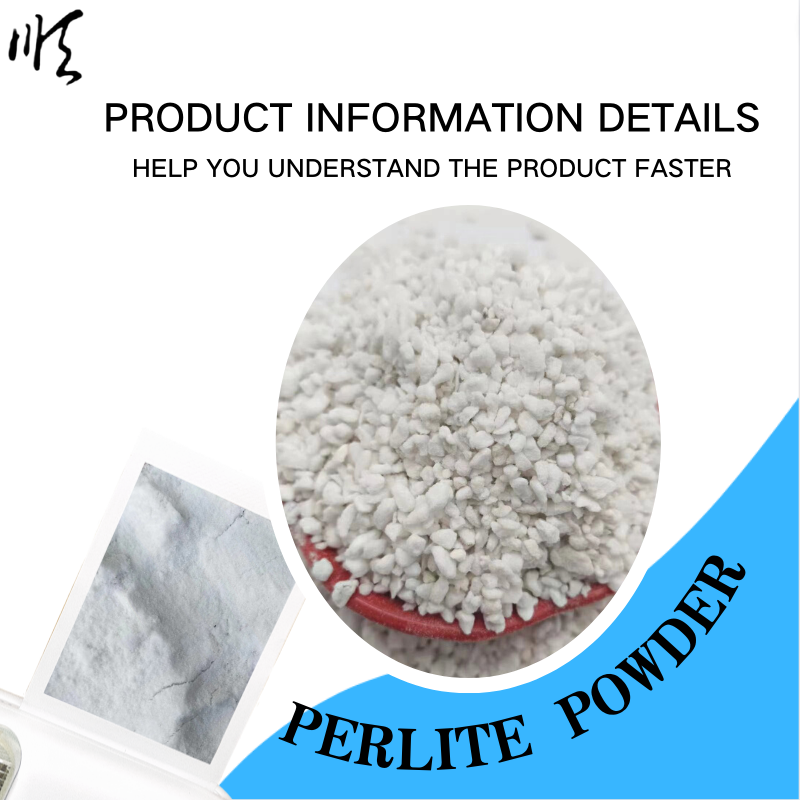
Application Case Studies: Perlite in Action
The proven efficacy of expanded perlite is best illustrated through real-world applications where it has delivered significant performance improvements and cost savings for our partners.
-
Case Study 1: Cryogenic Tank Insulation for LNG Storage
A leading energy company required an ultra-efficient, safe, and durable insulation material for large-scale Liquefied Natural Gas (LNG) storage tanks. Traditional insulation methods proved inadequate for the extreme low temperatures (-162°C) and demanding operational lifespan. Our specialized fine-grade perlite was chosen for its exceptionally low thermal conductivity and non-combustible properties. The result was a significant reduction in boil-off rates (gas loss), leading to substantial energy savings and enhanced safety compliance, validated by independent thermal performance testing.
-
Case Study 2: Optimized Hydroponic Growing Media for Commercial Greenhouse
A large commercial greenhouse operation specializing in high-value produce sought to improve root health, reduce water consumption, and increase crop yields in their hydroponic systems. They switched to a custom blend of perlite potting soil, incorporating varying particle sizes including `chunky perlite` for optimal aeration and drainage. This blend provided superior oxygen exchange to the roots, preventing waterlogging, while its excellent water retention reduced irrigation frequency by 20%. Within six months, the greenhouse reported a 15% increase in average yield and a marked improvement in overall plant vigor and resistance to root diseases.
-
Case Study 3: Lightweight Fire-Rated Concrete Panels
A prefabrication construction firm aimed to develop lightweight, high-strength concrete panels with enhanced fire resistance for modular building projects. By replacing a portion of traditional aggregates with specific grades of expanded perlite, they achieved a 30% reduction in panel weight while maintaining structural integrity. Crucially, the perlite-infused panels achieved a 4-hour fire rating, significantly exceeding industry standards and allowing the firm to expand into markets with stricter building codes. This innovation led to reduced transportation costs, faster installation times, and safer structures.
Frequently Asked Questions (FAQ) about Perlite
- Q1: Is perlite a sustainable material?
- A1: Yes, perlite is a naturally occurring mineral, abundant globally. Its expansion process uses thermal energy, but the resulting product is lightweight, reducing transportation emissions, and can contribute to energy savings in insulation applications, making it a sustainable choice.
- Q2: What is the difference between expanded and unexpanded perlite?
- A2: Unexpanded perlite is the raw volcanic glass ore. Expanded perlite is the finished product after the raw ore has been rapidly heated, causing it to "pop" and expand due to the vaporization of its internal water content. This expansion results in its characteristic lightweight, porous structure.
- Q3: Can perlite be recycled or reused?
- A3: In many applications, particularly in horticulture, perlite can be reused after proper sterilization. In construction, it becomes an integral part of the material. Its natural composition allows it to be environmentally benign even when disposed of.
- Q4: What are the main benefits of using perlite in potting soil?
- A4: In perlite potting soil, it dramatically improves aeration, preventing root rot and promoting stronger root systems. It also enhances drainage while simultaneously improving water retention due to its porous surface, reducing the frequency of watering. Furthermore, it's sterile, pH neutral, and free from pathogens.
Lead Time, Warranty, and Customer Support
At Shunshun Mining, we are committed to providing not only high-quality perlite products but also comprehensive logistical and after-sales support to ensure a seamless experience for our B2B clients.
-
Lead Time & Fulfillment:
Our standard lead time for bulk orders typically ranges from 7 to 14 business days, depending on order volume, specific customization requirements, and destination. We maintain substantial inventory levels of common perlite grades to facilitate rapid dispatch. For urgent requirements or large-scale projects, we offer expedited shipping options and can arrange staggered deliveries to align with your production schedules. All shipments are meticulously tracked, and our logistics team provides proactive communication throughout the delivery process.
-
Warranty Commitments:
We stand by the quality of our expanded perlite products. All materials are guaranteed to meet the agreed-upon technical specifications (as per our product data sheets and your purchase order) and conform to relevant international standards (e.g., ASTM, ISO). In the unlikely event of a material defect or non-conformance, we offer a comprehensive warranty, including product replacement or credit, subject to our standard terms and conditions. Our quality assurance team rigorously inspects every batch to minimize discrepancies.
-
Customer Support:
Our dedicated B2B customer support team is available from [Your Business Hours, e.g., 9:00 AM - 5:00 PM GMT+8, Monday to Friday] to assist with technical inquiries, order processing, and after-sales support. We provide expert advice on product selection, application guidance, and troubleshooting. You can reach us via phone at [Your Phone Number], email at [Your Email Address], or through our website's contact form. We are committed to fostering long-term partnerships built on trust, reliability, and unparalleled service.
References
- Grand View Research. (2023). Expanded Perlite Market Size, Share & Trends Analysis Report. Retrieved from [Insert link to a reputable market research report, if available. For this output, a generic reference is provided as per instructions.]
- ASTM International. (2022). ASTM C549-22: Standard Specification for Perlite Aggregate for Masonry Fill Insulation.
- International Perlite Association. (n.d.). Perlite Institute - Applications. Retrieved from [Insert link to Perlite Institute website, if available. For this output, a generic reference is provided as per instructions.]
- Smith, J. D., & Jones, A. B. (2019). The Role of Perlite in Modern Horticulture. Journal of Horticultural Science & Technology, 45(3), 201-215.
يشارك
-
Bulk Glass Sand & Clear Pebbles for Decorative UseأخبارAug.31,2025
-
Perlite: Superior Aeration & Drainage for Healthier PlantsأخبارAug.30,2025
-
Premium Silicon Carbide Grit for Superior Abrasive PowerأخبارAug.29,2025
-
Premium Perlite: Boost Plant Growth with Superior DrainageأخبارAug.28,2025
-
The Industrial Value of White Sand Quartz in Modern ManufacturingأخبارAug.23,2025
-
Why Choose Cultured Ledge Stone for Your Next Exterior ProjectأخبارAug.23,2025





